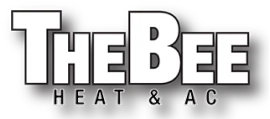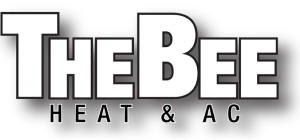As the summer season approaches, it’s time to ensure your home is equipped to handle the heat. A properly functioning air conditioning (AC) system and Heating, Ventilation, and Air Conditioning (HVAC) unit are crucial for maintaining a comfortable and energy-efficient living environment during the sweltering months. This article will guide you through the steps to prepare your home for the summer, focusing on the essential aspects of AC and HVAC maintenance.
On This Article
hide
1)
Schedule a professional HVAC inspection:
2)
Change or clean air filters:
3)
Check and seal ductwork:
4)
Clean and maintain the outdoor condenser unit:
5)
Install a programmable thermostat:
6)
Inspect and clean vents and registers:
7)
Insulate your home:
8)
Utilize ceiling fans:
9)
Shade your windows:
10)
Perform routine maintenance:
11)
Conclusion:
Schedule a professional HVAC inspection:
Before the heatwave hits, it’s crucial to have your system inspected by a professional HVAC technician. They will check your air conditioning unit for any issues, clean the evaporator and condenser coils, and ensure the system is running at peak efficiency. During the inspection, the technician will also assess your home’s ductwork, looking for any leaks, damage, or blockages that could impede airflow. Having a professional inspection not only guarantees optimal performance but can also prevent costly repairs down the line.
Change or clean air filters:
Dirty air filters can negatively impact the performance of your AC system and lead to higher energy bills. A clogged filter restricts airflow, forcing your unit to work harder to maintain the desired temperature. This can also contribute to poor indoor air quality, as dust, pollen, and other contaminants are not effectively filtered out. Be sure to change or clean your air filters every one to three months, depending on the type of filter you use and the specific needs of your home. This simple task can significantly improve the efficiency of your AC system and the quality of the air you breathe.
Check and seal ductwork:
Leaky ducts can lead to substantial energy loss, as cooled air escapes into unconditioned spaces like attics or crawlspaces. To prevent this, inspect your home’s ductwork for any visible gaps, cracks, or loose connections. If you find any leaks, seal them using duct mastic or foil-backed tape, which are designed specifically for this purpose. Avoid using duct tape, as it tends to degrade over time and lose its adhesive properties. For more extensive issues with your ductwork, consider hiring a professional to conduct a thorough inspection and perform any necessary repairs.
Clean and maintain the outdoor condenser unit:
The outdoor condenser unit is a vital component of your AC system, responsible for releasing heat absorbed from your home. To ensure its optimal performance, clear away any debris, leaves, or dirt that may have accumulated around the unit. This prevents blockages and allows for proper airflow. Additionally, clean the condenser coils with a soft brush or a coil cleaner, as dirty coils can reduce the system’s efficiency. Make sure to trim any plants or bushes near the unit, maintaining a clearance of at least two feet to avoid restricting airflow.
Install a programmable thermostat:
A programmable thermostat can help you save energy and money by automatically adjusting your home’s temperature when you’re away or asleep. By setting your thermostat to raise the temperature by a few degrees when you’re not at home, you can significantly reduce your AC’s energy consumption. Many modern thermostats also offer smart features, such as remote access and control through a smartphone app, making it easy to manage your home’s temperature and monitor energy usage.
Inspect and clean vents and registers:
Proper airflow is crucial for the efficient operation of your AC system. To ensure unrestricted air circulation, inspect the vents and registers throughout your home. Remove any dust, pet hair, or debris that may have accumulated, and ensure that furniture or other objects are not blocking the vents. Cleaning and adjusting your vents and registers can significantly improve the performance of your AC system and help maintain a comfortable temperature in your home.
Insulate your home:
Proper insulation plays a crucial role in maintaining a comfortable temperature during the summer months. Inspect your home’s insulation in the attic, walls, and crawl spaces to ensure it is adequate and in good condition. If necessary, add more insulation or replace damaged material to improve your home’s energy efficiency. Proper insulation prevents heat from entering your home, reducing the workload on your AC system and lowering your energy bills.
Utilize ceiling fans:
Using ceiling fans in conjunction with your AC system can help distribute cool air more evenly throughout your home, allowing you to raise the thermostat a few degrees without sacrificing comfort. This can lead to significant energy savings over the course of the summer. Make sure your ceiling fans are set to rotate counterclockwise, which pushes cool air downwards, creating a more comfortable living environment.
Shade your windows:
Sunlight streaming through windows can significantly heat up your home, causing your AC system to work harder to maintain a comfortable temperature. To reduce this heat gain, consider installing shades, blinds, or curtains on windows that receive direct sunlight. Exterior shading devices, such as awnings or solar screens, can also be effective in blocking solar heat. By shading your windows, you can keep your home cooler and reduce the strain on your AC system.
Perform routine maintenance:
Regular maintenance is essential for keeping your AC and HVAC systems running efficiently throughout the summer. In addition to the steps mentioned above, check for any unusual noises or vibrations coming from your system, which could indicate a problem that needs attention. Keep an eye on the refrigerant level, as low levels can cause your AC to work harder and consume more energy. Lubricate moving parts, such as motors and bearings, to reduce friction and wear. By staying on top of routine maintenance, you can avoid unexpected breakdowns and ensure your system operates at peak efficiency all summer long.
Conclusion:
With the summer season approaching, taking the necessary steps to prepare your home’s AC and HVAC systems can make a significant difference in your comfort and energy bills. By scheduling a professional inspection, maintaining air filters, sealing ductwork, cleaning the outdoor condenser unit, installing a programmable thermostat, and inspecting vents and registers, you can ensure your home stays cool and comfortable throughout the warmer months.
Additionally, investing in regular maintenance and upkeep of your AC and HVAC systems can prolong their lifespan and help prevent costly repairs or replacements. As you prepare for the summer season, remember that a well-maintained air conditioning system not only keeps your home comfortable but also contributes to better indoor air quality and energy efficiency. By following these steps and staying proactive with your home’s HVAC maintenance, you can enjoy a cool and relaxing summer season without breaking the bank.

